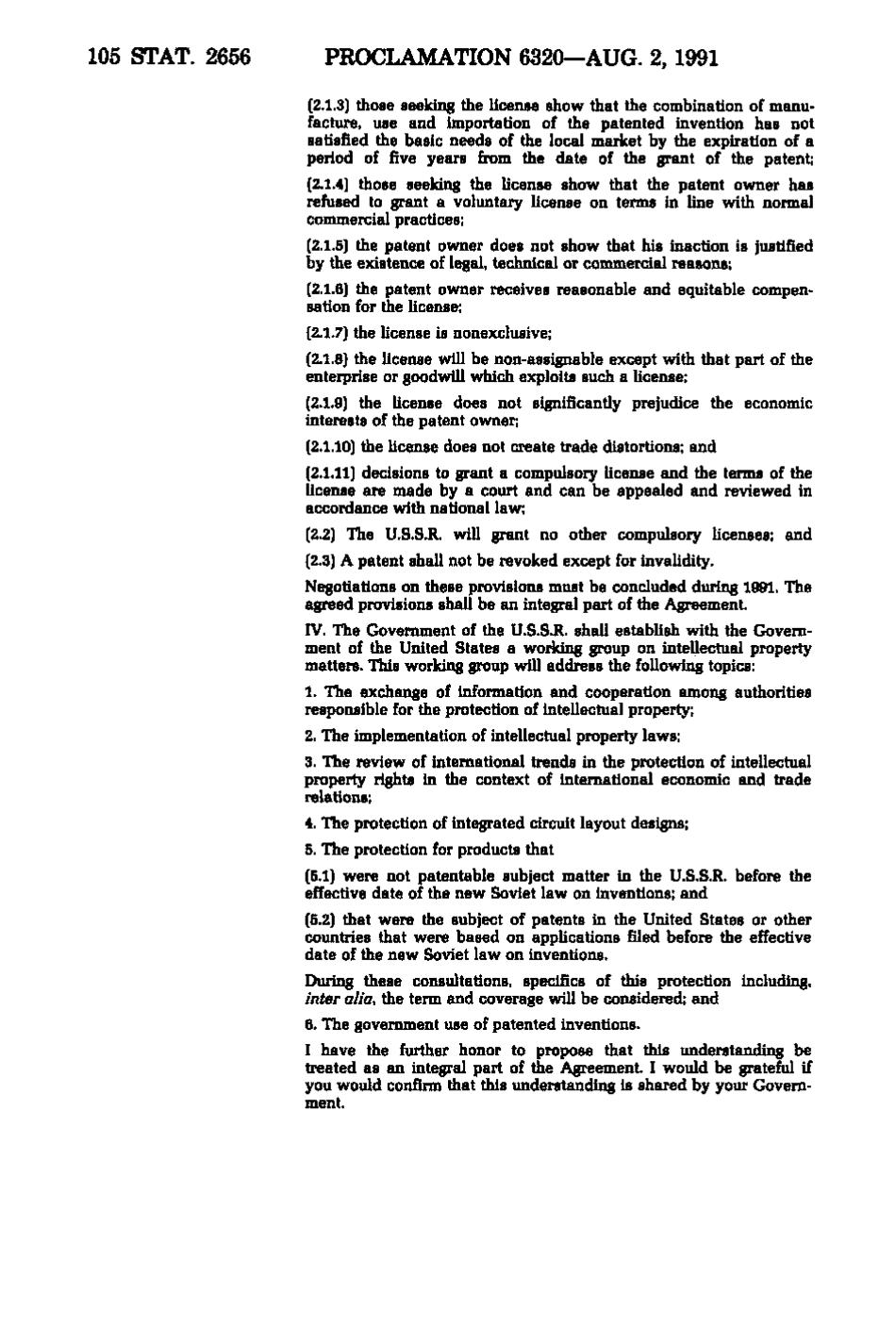105 STAT. 2656 PROCLAMATION 6320—AUG. 2, 1991 (2.1.3) those seeking the Ucense show that the combination of manufacture, use and importation of the patented invention has not satisfied the basic needs of the local market by the expiration of a period of five years from the date of the grant of the patent; (2.1.4) those seeking the license show that the patent owner has refused to grant a voluntary license on terms in line with normal commercial practices; (2.1.5) the patent owner does not show that his inaction is justified by the existence of legal, technical or commercial reasons; (2.1.6) the patent owner receives reasonable and equitable compensation for the license; (2.1.7) the Ucense is nonexclusive; (2.1.8) the license will be non-assignable except with that part of the enterprise or goodwill which exploits such a license; (2.1.9) the license does not significantly prejudice the economic interests of the patent owner; (2.1.10) the license does not create trade distortions; and (2.1.11) decisions to grant a compulsory license and the terms of the license are made by a court and can be appealed and reviewed in accordance with national law; (2.2) The U.S.S.R. will grant no other compulsory licenses; and (2.3) A patent shall not be revoked except for invalidity. Negotiations on these provisions must be concluded during 1991. The agreed provisions shall be an integral part of the Agreement. rv. The Government of the U.S.S.R. shall establish with the Government of the United States a working group on intellectual property matters. This working group will address the following topics: 1. The exchange of information and cooperation among authorities responsible for the protection of intellectual property; 2. The implementation of intellectual property laws; 3. The review of international trends in the protection of intellectual property rights in the context of international economic and trade relations; 4. The protection of integrated circuit layout designs; 5. The protection for products that (5.1) were not patentable subject matter in the U.S.S.R. before the effective date of the new Soviet law on inventions; and (5.2) that were the subject of patents in the United States or other countries that were based on applications filed before the effective date of the new Soviet law on inventions. During these consultations, specifics of this protection including. inter alia, the term and coverage will be considered; and 6. The government use of patented inventions. I have the further honor to propose that this understanding be treated as an integral part of Uie Agreement. I would be grateful if you would confirm that this understanding is shared by your Government.
�
